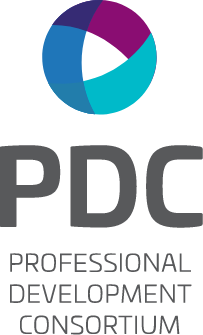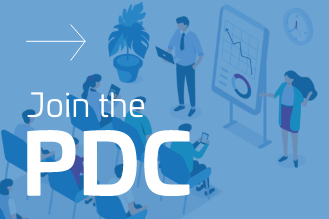You are here
Competencies and Benchmarks: Not Just Words on a Page
September 15, 2020

By Devin Lintzenich
On a call with PDC members in June 2020, I shared my experience developing firm-wide core competencies and practice-specific expectations (a.k.a. benchmarks) for associates. Thanks to the PDC Communications Committee for the invitation to build on that presentation in a blog post.
PDC members can review the slide deck here, so I won’t rehash the presentation. In summary, I included lessons learned about and guidance on how to accomplish the following:
- Establish strategy for a large-scale, ongoing professional development initiative like this one.
- Identify the associates, partners and leaders you need to learn from and garner support from in order to make this successful.
- Define and develop firm core competencies (and why these should come first).
- Define and develop practice expectations (and how these might complement the core competencies).
- Launch these documents, articulate your strategy and navigate the FAQs.
- Build mechanisms so the documents live and work for years to come.
The punchline, in my opinion, is that we should resist the urge or pressure to jump straight to #3 and 4 above and then move on to the next project. The actual words on the pages of the competency and benchmark documents are just a small part of this effort. Though, I don’t mean to suggest writing them will be quick or easy, ha! On the contrary, you will expend significant time and energy crafting the words because the documents must be excellent and precise and pass the scrutiny of the skeptical lawyer whose livelihood depends on his or her ability to hunt for exceptions and weaknesses. (I mention strategies for mitigating and managing this in the slide deck.) But don’t let that distract from or overshadow the equally important task of strategically determining and communicating why and how the competencies and benchmarks need to be used.
In order for this to be a fruitful exercise worth everyone’s time, the documents need to be rooted in and manifestations of effective strategy, buy in, launch, and ongoing mechanisms. Moreover, creating the measuring sticks and roadmaps for people’s careers (let’s be honest, their identities) is a huge responsibility and opportunity; a thorough and strategic approach can contribute to a positive culture. Competencies and expectations should be tied to more than just the annual evaluation; they should be active tools for associate development. They should lead to better performers, sure. But they can also lead to clarity, direction, purpose, motivation, engagement, and a growth mindset, each of which helps the firm as much as it will help the individuals. (If this seems too lofty or soft or unrelated to you or your firm’s leadership, I highly recommend Anne Brafford’s book, Positive Professionals: Creating High-Performing Profitable Firms through the Science of Engagement.)
No firm’s approach will resonate perfectly with another. For the sake of example, I’ll share more about ours (which has been successful, but is, of course, imperfect and has encountered the expected number of bumps in the road.) My core strategy centers on development. I knew that our competencies needed to serve the firm, to articulate the skills the firm expects partnership-track associates to develop at each stage in their career so that partners could fairly and accurately evaluate their performance. In addition, I was committed to creating competencies and related mechanisms (like individual, confidential coaching) that serve associates, that help them become better lawyers, that empower them to take ownership of their careers and their development. Long-term, I hope this approach fosters growth-oriented partners who can adjust to the changing landscape of the legal industry and lead our firm (founded in 1922) into another century of success.
For specifics about how and why I took this tact, take a look at the presentation slides or email me. I’m also curious to learn from you: what strategy drives your work and which resources do you rely on?
As the Director of Professional Development and Retention at Bass, Berry & Sims, Devin Lintzenich leads attorney integration, training and development. She incorporates her experience in business development and communications as well as her background in education as she cultivates talent, ultimately enhancing client service.


